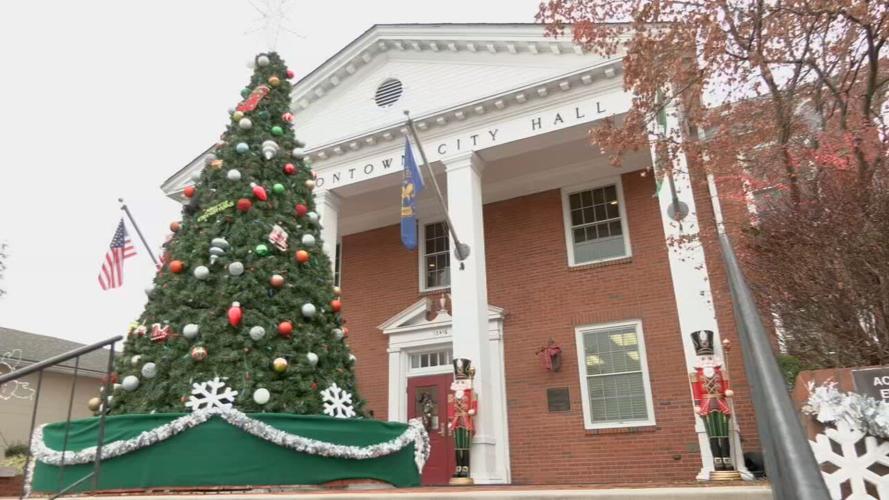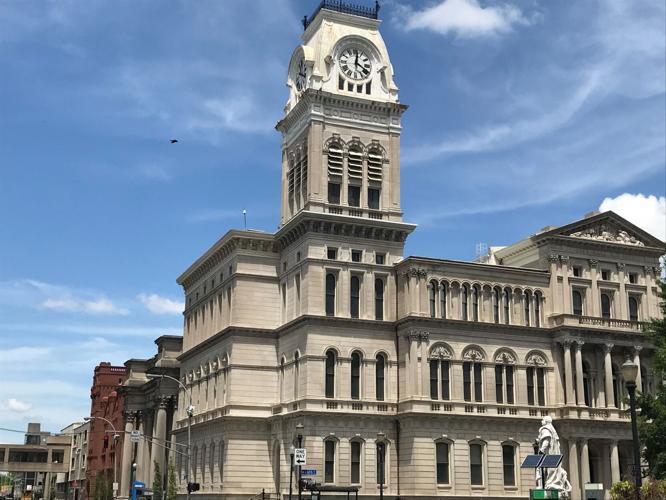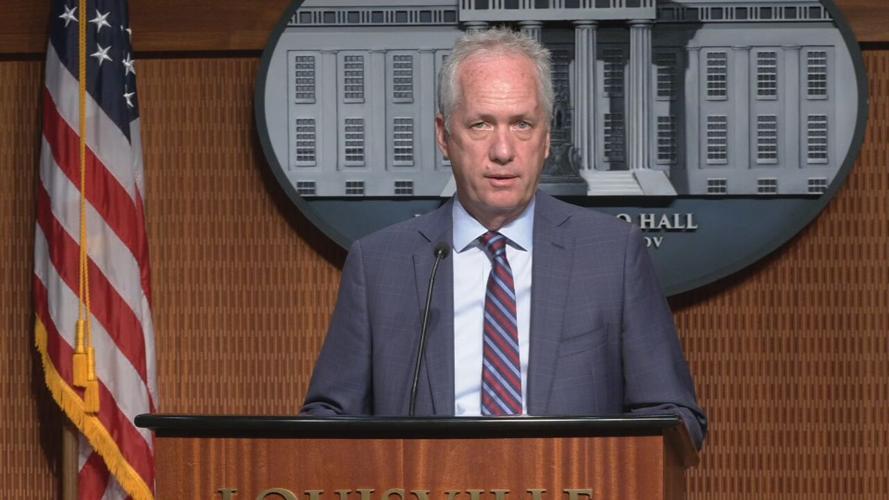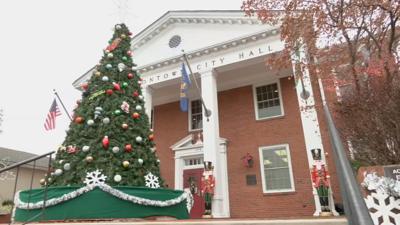LOUISVILLE, Ky. (WDRB) – A bill giving some residents of Louisville the power to form new suburban cities cleared the Kentucky General Assembly this week and awaits action by Gov. Andy Beshear.
State senators voted 26-8 Tuesday to approve House Bill 314. Hours later the House agreed with the Senate’s changes on a 73-20 vote.
HB 314 addresses a raft of Louisville-related issues, from mayoral term limits to the role of the Jefferson County Attorney’s opinions on local legislation. But provisions allowing additional cities and more annexation by current cities became the centerpiece of the debate in the legislature.
Jefferson County has about 80 independent cities. The merger of the county and Louisville governments nearly two decades ago allowed those to remain but prevented new cities from forming.
Critics liken the bill to a “war on Louisville” that threatens to unravel key parts of merger. Supporters say letting citizens create new small cities is simply a matter of fairness, especially outside the dividing line of Louisville’s Urban Services District.
That district – the boundary of the old City of Louisville – levies higher taxes but gives residents access to services like trash collection that aren’t available outside it.
By passing the bill Tuesday, lawmakers in the GOP-controlled legislature ensured they can vote to override a potential veto by Beshear, a Democrat, during the veto period that started Thursday.
The measure is sponsored by four House Republicans from Jefferson County – Reps. Jason Nemes, Kevin Bratcher, Ken Fleming and Jerry Miller. Fleming and Miller served on the Louisville Metro Council before being elected to state office.
“It says that the people of Fern Creek -- if they want to pay more, if 66% of them come together -- they can then incorporate and get their own police department or whatever services that all our great cities in the commonwealth and Jefferson County provide,” Nemes told a Senate committee last week.
But Bill Hollander, a Metro Council Democrat, testified that the bill’s approach was to “shoot first and ask questions later,” particularly when state law now allows the creation of service districts in unincorporated areas.
“No one has ever filed such a petition asking for the creation of a service district – and that’s despite encouragement from council members,” he said.
HB 314 advanced along party lines, with the only pass vote in either chamber from Republican Sen. Adrienne Southworth, whose new district stretches from Anderson County to southeastern Jefferson County. She said she needed more time to understand the bill’s potential impact.
The Senate also turned back proposed amendments by Sen. Morgan McGarvey of Louisville, including one that would have given subpoena power, through a circuit court review, to the inspector general of Louisville’s new civilian police review board. The Metro Council voted 25-1 to create the board in 2020.

Louisville City Hall
HB 314 evolved since it was introduced in January. The version that passed this week would:
-Let voters in unincorporated areas in Jefferson County outside the Urban Services District form new cities of at least 6,000 people if 66 percent of those living in the proposed city limits petition the Metro Council. An earlier version had a higher requirement: 75 percent.
-Require the Metro Council to approve the new cities if they meet the bill’s thresholds. That could happen only after July 15, 2024.
-Create a task force – the 15-member Louisville Metro Comprehensive Review Commission – to do a sweeping review of Metro government operations, including the relationship between merged city-county government and Jefferson County’s suburban cities and service districts.
-Require Metro government to submit an annual report to the urban services district board and the Metro Council “containing but not limited to detailed operating and capital expenditures of each service performed by the consolidated local government.”
-Broaden the Metro Council’s government oversight and audit committee’s powers to let it subpoena former Metro officers or board appointees during investigations.
-Limit Louisville’s mayor to two consecutive terms, down from the three now allowed in state law. The term limits were not in the bill that the House Local Government Committee passed March 2; they were added on the House floor and kept in the final version.
Among other things, the bill also requires the Metro Council to approve annexation requests if 66 percent of voters in an unincorporated area ask to be brought into a neighboring city. And it says that county attorney opinions on council legislation are advisory, and not required.
Where they stand
Louisville Mayor Greg Fischer, a Democrat serving his final year in office, testified against the bill alongside Hollander last week in the Senate’s state and local government committee. He warned that the creation of new cities could lead to a $50 million revenue loss for Metro Louisville, create additional bureaucracy for businesses and threaten federal funds apportioned by population.
“Make no mistake, this bill will unwind a critical component of merger and it will do so without that same level of community involvement, study and discussion that led to the passage of merger nearly two decades ago,” Fischer said.

Louisville Mayor Greg Fischer at Louisville Metro Hall on Tuesday, Jan. 4.
Sixteen of the Metro Council’s majority Democratic 19-member caucus opposed the bill. All of the seven council Republicans were in favor of it, caucus director Steve Haag said.
Democrats running for Louisville mayor largely oppose the creation of new cities as proposed in the HB 314.
Rev. Tim Findley Jr. called the bill another example of a “war on Louisville” led by state lawmakers and warned that it would begin to unravel merged government.
“I understand if people feel that in their areas they're not receiving services commensurate with what they’re paying in taxes,” he said. “But I think we do need to explore what can be done instead of making this Herculean leap into forming your own city.”
Indeed, it’s become clear that some residents of Metro Louisville aren’t happy with the services they receive, “which I think is a very valid point,” said Skylar Graudick. “I’m just not sure that this would be the fix.”
Graudick, a former Louisville police officer, said adding new cities could lead to an “inefficient duplication in services” at first.
Craig Greenberg said on Twitter this month that “we do not need people outside of Louisville trying to reorganize our city government, especially in a way that will raise taxes, make our city less competitive, create more bureaucracy and make it harder for our city to access federal dollars.”
Colin Hardin said he wouldn’t want to see new cities form if he is elected mayor. But he argued that some places in outlying parts of Jefferson County – such as Fairdale, where he lives -- “aren't taken care of in the same ways that certain other parts of the city are.”
Jefferson Circuit Clerk David Nicholson blamed “leadership failures” in recent years for officers leaving the Louisville Metro Police Department. He said the next mayor should be given time to address police and other services across the county.
Like Hollander, Nicholson noted that residents already can request service districts for unincorporated areas.
“There is a mechanism for them to have a greater voice,” he said.
Anthony Oxendine said he would support voters in Jefferson County deciding whether to allow new cities but not the petition approach in HB 314.
Democratic candidates Shameka Parrish-Wright and Sergio Alexander Lopez did not respond to requests for comment for this story.
Among GOP contenders for Louisville mayor, Jeffersontown Mayor Bill Dieruf said he supports the choice given to residents in unincorporated areas to create their own cities.
“I am absolutely in favor of allowing people the ability to do it,” he said. “But the bill doesn't say you have to do it. It just gives you the right to do it.”
Chartrael Hall also backs the petition approach because it lets residents decide. “Who knows better than the people in that area?”
Philip Molestina, however, said allowing new cities seems like a dismantling of merged government that isn’t “healthy.” And he took issue with legislators in his own party pushing the bill.
“What’s the real agenda here?” he said. “Everybody dislikes when people don’t talk straight to them. I think that's what's happening here.”
Rob Stark Reishman Jr. said he supports new cities. In his eastern Jefferson County area, he said he’s not seen a Louisville police cruiser since the protests at Kentucky Attorney General Daniel Cameron’s house in 2020.
“They're not working these neighborhoods, but we're still paying for it,” he said. “So we're basically paying for services that we don't receive.”
What happens next
Beshear could veto the bill, but the legislature could then vote to override any veto when it returns April 13 for its final two days of the 2022 session.
If the bill becomes law, the task force would have until September 15, 2023 to issue its report and recommendations. The group would include Louisville’s mayor; the president of the Jefferson County League of Cities; three members of the state Senate; three members of the House; three Metro Council members; three members of the Greater Louisville Inc. chamber of commerce; and a member of the Jefferson County Fire Chiefs Association.














